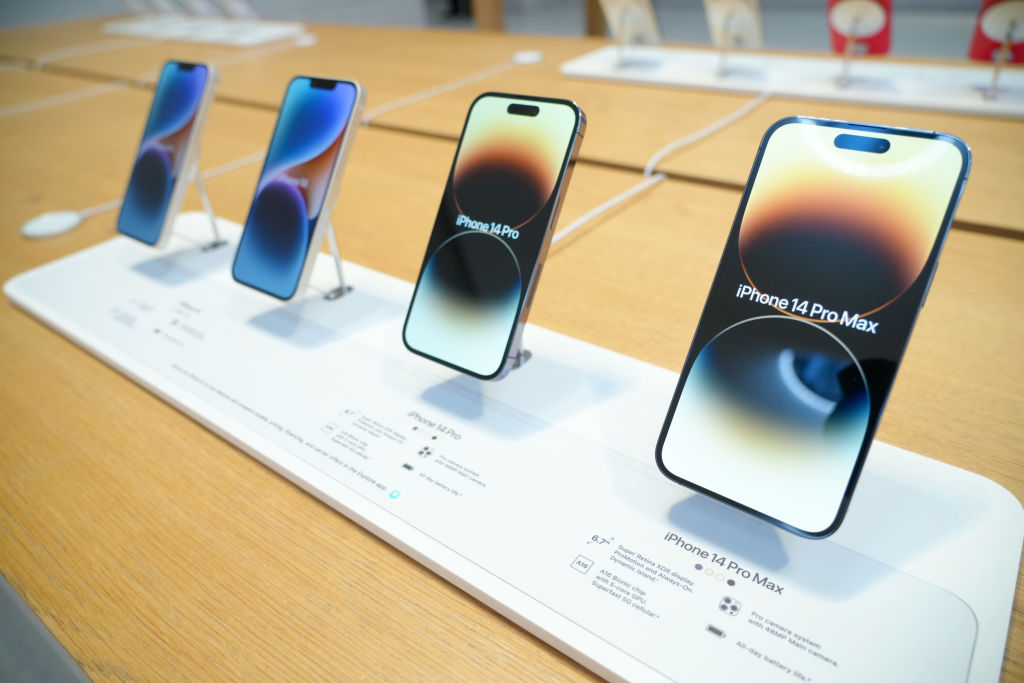
Apple Inc. began making its new iPhone 14 in India sooner than anticipated, after a surprisingly smooth production rollout that slashed the lag between Chinese and Indian output from months to mere weeks.
The U.S. tech giant made the announcement on Monday, weeks after the marquee device’s Sept. 7 unveiling. It had worked with Foxconn Technology Group, its most important production partner, with the original goal of assembling iPhones in Chennai about two months after global launch, Bloomberg News reported in August.
The partners quickened the process after resolving supply chain issues, which helped production go smoother than expected, people familiar with the matter said, asking to remain anonymous discussing internal procedures.
Apple, which long made most of its iPhones in China, is seeking alternatives as Xi Jinping’s administration clashes with the U.S. government and imposes lockdowns across the country that have disrupted economic activity. At the same time, Narendra Modi’s administration is keen to make the country into a viable competitor to China in technology and production capability, especially as Western investors and corporations begin to sour on Beijing’s track record.
“India is now an attractive location for manufacturing as it offers better labor cost structure while Apple is looking to reduce geopolitical risks,” said Jeff Pu, an analyst with Haitong International Securities. “To turn India into a major manufacturing site, Apple will help India accelerate its production timeline.”
“We’re excited to be manufacturing iPhone 14 in India,” Apple said in an emailed statement Monday without discussing production timelines. A Foxconn representative declined to comment.
Apple-partners such as Foxconn, which makes the majority of the world’s iPhones, typically begin assembling the device in India about six to nine months after Chinese factories. That’s partly because more time is needed to secure and ship critical components to a supply chain less accustomed to the process.
Assembling iPhones often entails coordination between hundreds of suppliers and meeting Apple’s infamously tight deadlines and quality controls.
Still, analysts such as Ming-Chi Kuo of TF International Securities Group have said they anticipate Apple will eventually ship new iPhones from both countries at roughly the same time, a milestone in Apple’s efforts to diversify its supply chain and build redundancy.
Matching China’s pace of iPhone production would also mark a major achievement for India, which has been touting its attractiveness as an alternative at a time when rolling Covid lockdowns and US sanctions jeopardize the larger country’s position as factory to the world. Industry executives are exploring a so-called China-plus-one strategy of migrating some production to countries such as India or Vietnam.
Apple’s partners began making iPhones in India in 2017, the start of a yearslong effort to build manufacturing capabilities in the country. Besides offering backup to existing operations, the country of 1.4 billion is a promising consumer market and the Modi administration has offered financial incentives under its Make in India program.
“All major companies are now looking at India as part of their ‘China-plus one’ or ‘China-plus two’ strategy,” said Aruna Sundararajan, who served as a secretary to the federal government in 2017 when Apple first began assembling iPhones in India. “For the long run, we need to strengthen our logistics and infrastructure, boost the human capital and focus more on building an export hub to make India a viable alternative to China.”
More Must-Reads from TIME
- Cybersecurity Experts Are Sounding the Alarm on DOGE
- Meet the 2025 Women of the Year
- The Harsh Truth About Disability Inclusion
- Why Do More Young Adults Have Cancer?
- Colman Domingo Leads With Radical Love
- How to Get Better at Doing Things Alone
- Michelle Zauner Stares Down the Darkness
Contact us at letters@time.com